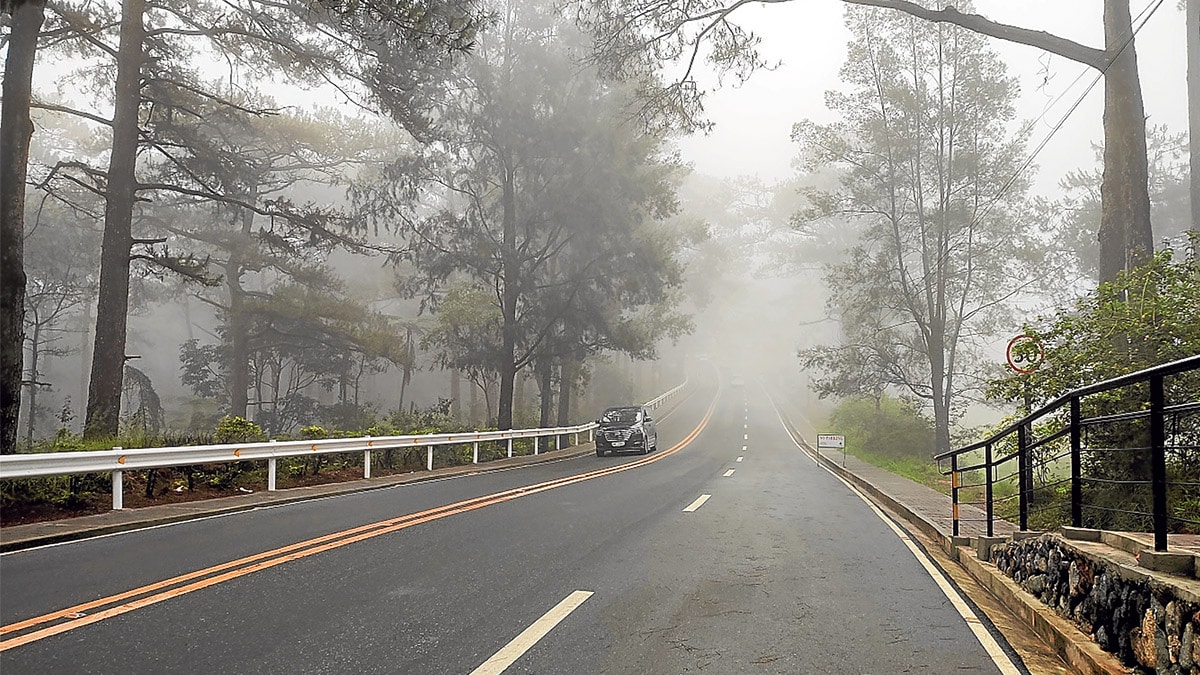
FOGGY DAY Fog blankets Camp John Hay in Baguio City in this photo taken on May 29. The government will be able to regain full control of this special economic zone, a former American military base after the Supreme Court ruled that its developer must return its leased property to BCDA. —Neil Clark Ongchango
BAGUIO CITY, Philippines —The Bases Conversion and Development Authority (BCDA) may opt for multiple developers instead of a single investor once it regains full control of all the commercial properties within Camp John Hay, Baguio City Mayor Benjamin Magalong revealed.
The mayor said he was informed by BCDA President Joshua Bingcang and John Hay Management Corp. (JHMC) president Marlo Quadra in a meeting last week that the government may no longer pursue a new single developer for Camp John Hay and may instead secure smaller lease agreements for specific projects as the need arises.
Camp John Hay, a former American military rest and recreation base in this city, has been converted into a golf and tourist destination by a consortium led by businessman Robert John Sobrepeña. Under a 1996 lease agreement with BCDA covering 247 hectares of built-up land, the consortium is converting Camp John Hay into a golf and tourist destination.
However, beginning in 2011, the lease contract became the subject of a contentious dispute between the government and Sobrepeña’s Camp John Hay Development Corp. (CJHDevco).
READ: SC lifts freeze order on eviction of Camp John Hay developer
The feud should have been resolved in 2015 when arbiters of the Philippine Dispute Resolution Center (PDRC) declared that both CJHDevco and JHMC, a subsidiary of BCDA, were liable for “the mutual breach” of the agreement and ordered the 1996 lease agreement rescinded.
However, the PDRC ruling and the subsequent writ of execution issued by a Baguio Regional Trial Court (RTC) were stopped by the Court of Appeals (CA), which imposed new guidelines on behalf of third-party complainants who have lease contracts with CJHDevco.
READ: Baguio execs in a quandary over SC ruling on John Hay
They were composed of families who have 50-year leases (up to 2046) of log homes within John Hay, the shareholders of the Camp John Hay Golf Club and independent companies operating in John Hay.
Supreme Court decision
Last April 3, however, the Supreme Court reinstated the 2015 PDRC arbitral decision that required Sobrepeña to turn over the leased property to BCDA and for the authority to give back to Sobrepeña P1.4 billion in rental payments.
The Supreme Court also set aside the CA ruling on third-party interests and restored the eviction order issued by a Baguio RTC that directed all John Hay occupants to vacate the properties leased from CJHDevco.
BCDA has not yet taken possession of buildings and other companies put up by Sobrepeña, Magalong said in an interview last Wednesday, as both parties were still sorting out the turnover mechanism while tackling third-party concerns.
In March, before the Supreme Court issued its ruling, Sobrepeña revealed at a news conference that CJHDevco and BCDA were preparing a settlement deal to resolve the fate of the third parties.
Magalong said he was not privy to the details of the turnover.
Baguio’s interests
According to Magalong, his meeting with the BCDA officials last week was to discuss how the Supreme Court decision would affect Baguio, which has set 19 conditions for the commercialization of John Hay in 1994, including a 25-percent share from the developer’s rent on top of other fees, and the separation of 14 barangays from the 625-ha John Hay reservation. The city government also informed JHMC in a letter in 2021 that BCDA owed the city more than P200 million.
According to Magalong, BCDA and the city government were drafting an agreement that would recognize Baguio’s authority to issue permits and licenses inside what is now the John Hay Special Economic Zone, which was one of the city’s 19 conditions.
“They also promised to consult Baguio,” he said, with regards to Camp John Hay’s future plans.

